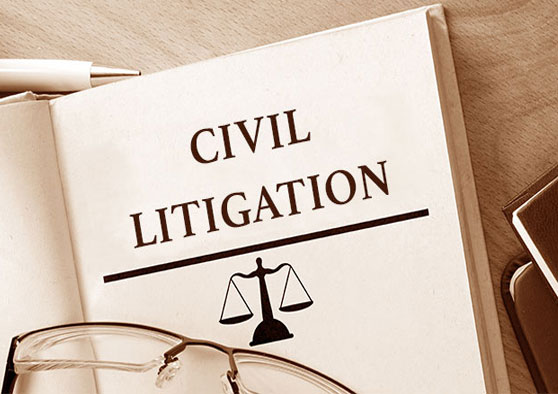
Raizada Law Associates is a top Civil Litigation Law Firm in Delhi that has the best Civil Litigation Lawyers In Delhi. The firm has built a robust practice and is recognized as one of the Best Litigation Law Firms in New Delhi. Civil litigation in India refers to the legal process by which individuals or entities seek to enforce or protect their legal rights through the courts. This can include a wide range of disputes related to property, contracts, torts, and more. One key aspect of civil litigation in India is the burden of proof. In a civil case, the burden of proof rests on the plaintiff, or the party who initiates the litigation. This means that the plaintiff must present evidence to support their claims in order to prove their case. The defendant, on the other hand, only needs to raise reasonable doubt about the plaintiff's claims in order to defeat them.
Get Civil Litigation in New Delhi from our highly experienced advocates. Another important aspect of civil litigation in India is the use of alternative dispute resolution (ADR) mechanisms. ADR refers to a range of processes that can be used to resolve disputes outside of the traditional courtroom setting, such as mediation, arbitration, and negotiation. These mechanisms can be faster and less expensive than traditional litigation, and can also help to preserve relationships between the parties involved.
The Indian legal system has two main types of civil courts - the District Courts and the High Courts. District Courts are the courts of first instance and have original jurisdiction in civil matters. High Courts are the appellate courts and have both original and appellate jurisdiction. If a party is not satisfied with the judgment of the District Court, they can appeal to the High Court.
The Indian legal system also has a hierarchy of courts, starting with the trial courts, followed by the High Courts, and ultimately the Supreme Court. This allows for a system of checks and balances and the ability to appeal a case to a higher court if necessary.
The Code of Civil Procedure (CPC) is the primary legislation governing the civil litigation process in India. The CPC lays out the procedures and rules that must be followed in civil cases, including filing a suit, serving notice, and presenting evidence. It also provides various types of relief that can be sought, such as injunctions, damages, and specific performance.
In summary, civil litigation in India is a legal process by which individuals or entities seek to enforce or protect their legal rights through the courts. Key aspects of the process include the burden of proof, alternative dispute resolution mechanisms, the hierarchy of courts, and the Code of Civil Procedure.
Send a message. We will contact you as soon as possible